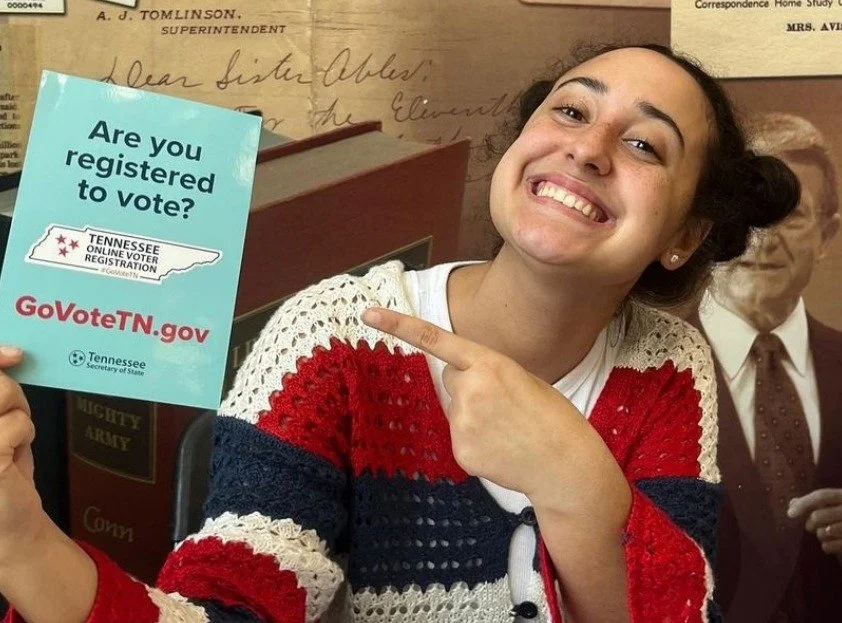A college student's guide to voting
To vote in the presidential election in November, Americans should begin the voter registration process soon. Although November is months away, preparations for the 2024 election begin right now. Citizen votes help decide the presidential nominee for each political party.
Pi Sigma Alpha is a nationally recognized collegiate honor society for political science students, run under president Emma Kendrick. She explains that “it’s so important that everyone votes, but for college students, I think it’s super exciting because a lot of them are in the age range of like their first or second elections.”
Kendrick along with her peers in Pi Sigma Alpha are passionate about voting, “We're getting to inherit this great country. So many people have worked so hard there's so many generations before us and they’ve blessed us with so much.”
She believes it’s our civic duty to vote, “College students, we're kind of the future. We might as well have a hand in it.”
Primary elections and caucuses alike will be held across the country to determine the presidential nominees. Iowa was the first state to host their caucus on Jan. 8. With an almost 30-point victory, former President Donald Trump finished in first place, Florida Governor Ron DeSantis came in second and former U.N. Ambassador Nikki Haley finished in third place.
Every state and political party will organize their primaries and caucuses differently. Therefore, it’s important to be aware of state guidelines concerning primary elections and caucuses.
In order to participate in a primary or caucus, Americans must be registered to vote. Guidelines for a qualified voter vary from state to state. In the state of Tennessee, a voter’s registration must be officially processed at least 30 days before they can participate in an election.
Additionally, a voter in Tennessee must be:
A citizen of the United States
18 years of age or older on or before the date of the next election
A resident of Tennessee
Registering to vote can take place either online or in person at a resident’s County Election Commission Office, County Clerk’s Office, Public Library or Register of Deeds Office. For more information on how to register to vote in the state of Tennessee click here.
Registered voters can then participate in state-led primaries and caucuses. If Americans are unable to make it to the polling lines, they have another option to participate via mail-in voting, also known as absentee voting.
Similar to the guidelines for a qualified voter, eligibility for absentee voting is determined by each state. In Tennessee, there are many qualifications in which a person can file for a mail-in ballot.
Some of these include:
You or your spouse are a full-time student in an accredited college or university outside the county where you are registered.
You are hospitalized, ill or physically disabled and unable to appear at your polling place to vote.
You will be outside the county where you are registered during the early voting period and all day on Election Day.
Kendrick assures students that “it’s super easy” to request an absentee ballot. She did it in the 2020 election, and the process was simple and clear-cut. “If you're a college student knowing that you're not going to be home, make sure that you have it on your radar. Like when you can request an absentee ballot and the deadline for mailing it in,” warns Kendrick.
For more information on the absentee voter guidelines in the state of Tennessee click here.
Request your absentee ballot here, even if you’re not from the state of Tennessee.



